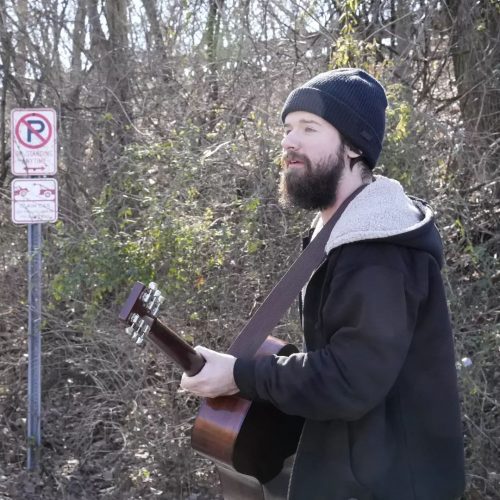Lee Trent, the artist formerly known as Trent Woods, is pretty new to the scene. Releasing music during the height of the pandemic in 2020, his first single under his new moniker was “Optimism,” released this year.
Now, interestingly (and ironically?), Trent returns with a follow-up single, appropriately deemed “Pessimism.” I won’t boldly assume what changed. I like to envision it as a two-parter series. Admittedly, I pretty much just skipped part one and went straight to “Pessimism” for the sake of efficient journalism, but upon my initial listening, I immediately found myself curious about the contents of its predecessor.
Lee Trent’s style is particularly unique; his song manages to combine the standard indie rock sound with alt-country elements, like fiddles, wailing strings, and acoustic guitar. Its guitar almost sounded like it came straight out of a surf rock song, if I’m being honest. This fusion of pretty distinct genres gives this song the opportunity to shine regardless of its particular “genre,” something I found pretty cool. I don’t see too much indie-country stuff these days. In an era of stadium country music pretty much taking our world by storm, this song was a pretty pleasant surprise as an indie music fan myself.
Despite this, his vocals were pretty standard for the indie world. Nothing too over the top or surprising, forcing you to really hone in on Trent’s lyrics and the uniqueness of his sound.
“You know I had this feeling that you might not trust me // You might not trust me after I changed my name // You might not trust me after I played this game”
After being hit with lyrics like this right in the beginning of the song after learning about Trent’s background, you can’t help but wonder whether this is a song about a personal connection or a possible relationship to his fans and listeners. It’s a story about someone special yet emotionally draining, but it also could be more deeply meta than that. Either way, it’s pretty interesting.
“And the more I decay, the less I want to stay ‘round here // Everything is left to regret and there’s no more time to reflect ‘round here”
Not only that, but it also resembles a commentary about growing up. It doesn’t necessarily capture the process of transitioning from childhood to adulthood, but rather, it’s about becoming older and wiser. It’s brutally honest in its lyricism and lighthearted in its sound in stark contrast. Nothing wrong with that, though. Some of the greatest songs of all time are great because they make you think.
Pessimistic in lyricism and optimistic in sound and nature, “Pessimism” will leave you feeling optimistic (thank you, thank you, I’m here all night!) about Lee Trent’s future as an alt-country singer and songwriter.







